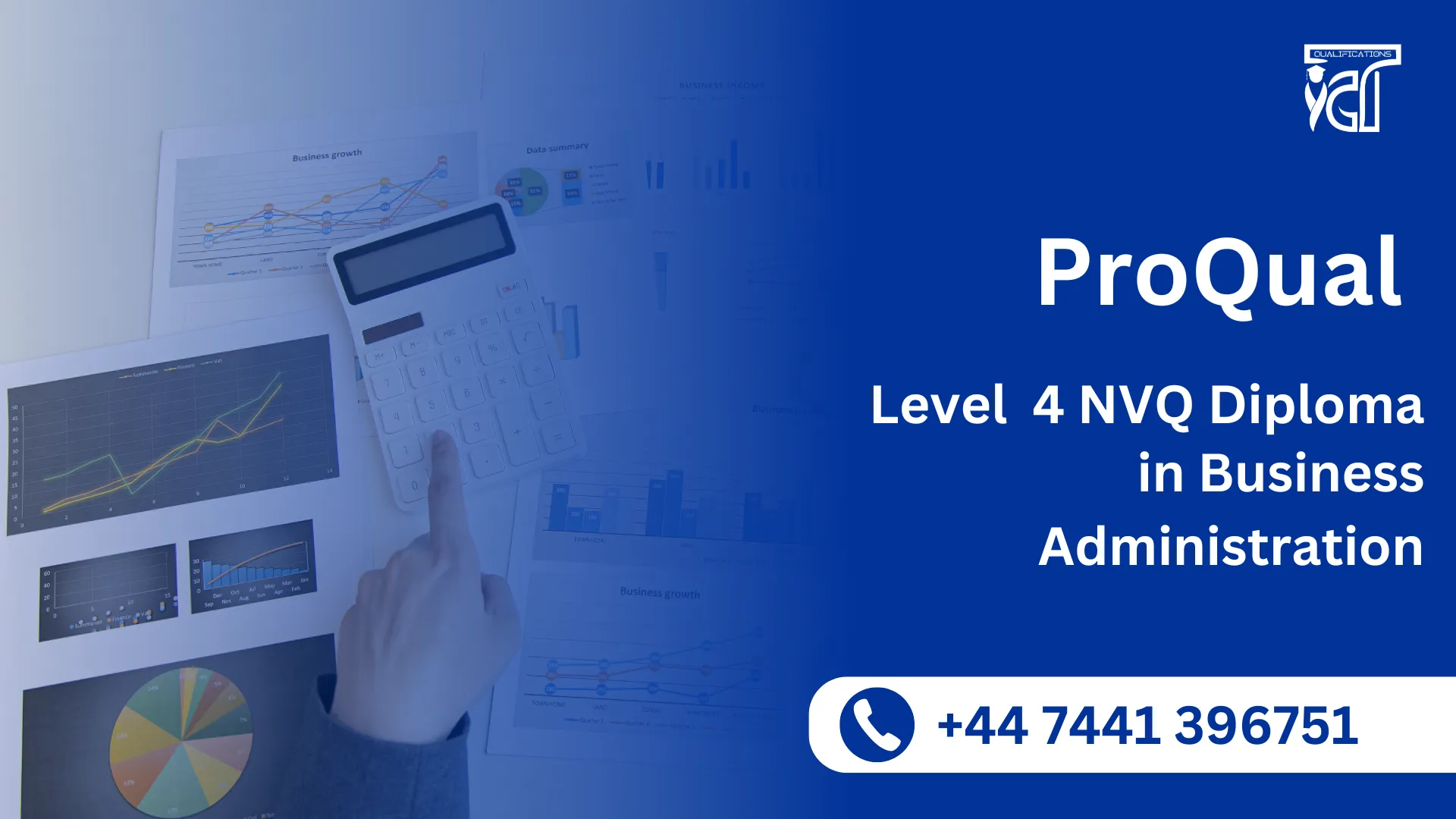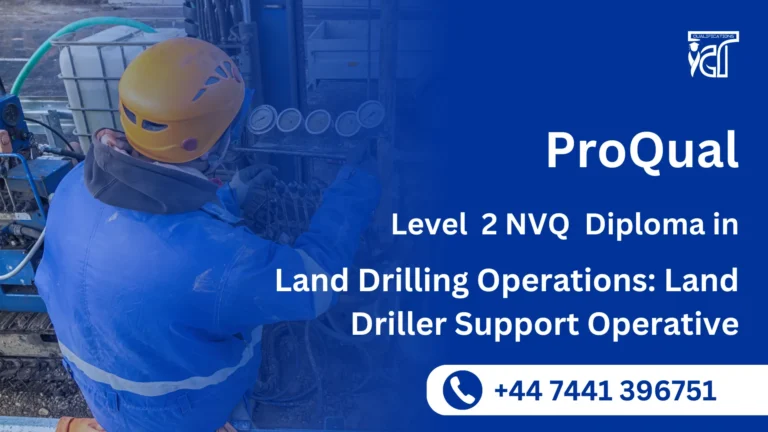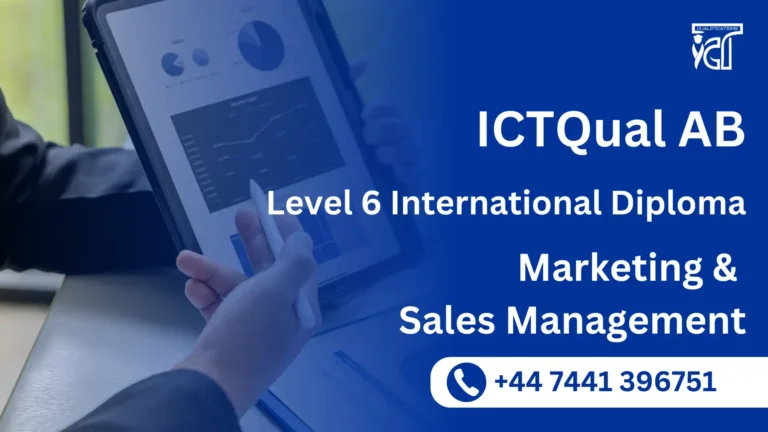In the fast-paced and dynamic business world, professional qualifications that enhance your administrative and leadership skills are crucial for career growth. The ProQual Level 4 NVQ Diploma in Business Administration offers an excellent opportunity to build and formalize your management and administrative expertise. This Ofqual-regulated qualification is perfect for professionals looking to take on more responsibility, improve their organizational effectiveness, and enhance their leadership capabilities.
Designed to provide you with practical, hands-on experience, the ProQual Level 4 NVQ Diploma in Business Administration is entirely assignment-based, meaning it focuses on real-world applications that can immediately improve your day-to-day work.
The ProQual Level 4 NVQ Diploma in Business Administration is an advanced qualification aimed at professionals who already have experience in administrative roles and are seeking to enhance their skills to progress into higher management positions. This Ofqual-regulated qualification provides in-depth knowledge of business operations, management practices, and strategic planning.
The ProQual Level 4 NVQ Diploma in Business Administration is designed to give learners a comprehensive understanding of the administrative and leadership functions within a business. You will gain insights into managing business resources, leading teams, handling finances, and improving operational performance.
This qualification is ideal for professionals who want to take on more senior roles in administration, such as business managers, office managers, and executive assistants. The course structure focuses on leadership, organizational efficiency, and practical business skills, making it a valuable asset for career development.
The ProQual Level 4 NVQ Diploma in Business Administration is a comprehensive qualification that equips you with the skills needed to excel in business administration and management roles. By focusing on practical, real-world scenarios, this assignment-based course ensures that you gain valuable, applicable experience that will immediately benefit your career.Whether you are looking to advance your current administrative role or take on more senior leadership responsibilities, this Ofqual-regulated qualification provides the perfect platform for professional growth.
ProQual Level 4 NVQ Diploma in Business Administration
To achieve the qualification candidates must complete a minimum of: 57 credits
- 18 credits from the Mandatory units in Group A, plus
- a minimum of 26 credits from Optional Group B
- a maximum of 13 credits from Optional Group C
Group A Mandatory Units – complete all units
| Sr# | Unit Title | Credit Value |
|---|---|---|
| 1 | Resolve administrative problems | 6 |
| 2 | Manage the work of an administrative function | 5 |
| 3 | Communicate in a business environment | 4 |
| 4 | Manage personal and professional development | 3 |
Group B Optional Units – a Minimum of 26 Credits
| Sr# | Unit Title | Credit Value |
|---|---|---|
| 1 | Contribute to the design and development of an information system | 5 |
| 2 | Manage information systems | 6 |
| 3 | Prepare specifications for contracts | 4 |
| 4 | Council for Administration | 6 |
| 5 | Support environmental sustainability in a business environment | 4 |
| 6 | Contribute to the improvement of business performance | 6 |
| 7 | Monitor information systems | 8 |
| 8 | Negotiate in a business environment | 4 |
| 9 | Evaluate the provision of business travel or accommodation | 5 |
| 10 | Develop a presentation | 3 |
| 11 | Manage an office facility | 4 |
| 12 | Deliver a presentation | 3 |
| 13 | Analyse and present business data | 6 |
| 14 | Create bespoke business documents | 4 |
Group C Optional Units – a Maximum of 13 credits
| Sr# | Unit Title | Credit Value |
|---|---|---|
| 1 | Manage a budget | 4 |
| 2 | Manage knowledge in an organisation | 5 |
| 3 | Develop working relationships with stakeholders | 4 |
| 4 | Recruitment, selection and induction practice | 6 |
| 5 | Develop and maintain professional networks | 3 |
| 6 | Manage physical resources | 4 |
| 7 | Prepare for and support quality audits | 3 |
| 8 | Manage business risk | 6 |
| 9 | Encourage learning and development | 3 |
| 10 | Manage a project | 7 |
| 11 | Initiate and implement operational change | 4 |
| 12 | Conduct quality audits | 3 |
| 13 | Develop and implement an operational plan | 5 |
| 14 | Design business processes | 5 |
| 15 | Optimise the use of technology | 6 |
| 16 | Establish business risk management processes | 5 |
| 17 | Promote equality of opportunity, diversity and inclusion | 5 |
| 18 | Manage team performance | 4 |
| 19 | Manage individuals’ performance | 4 |
| 20 | Manage conflict within a team | 5 |
| 21 | Implement and maintain business continuity plans and processes | 4 |
| 22 | Procure products and/or services | 5 |
| 23 | Collaborate with other departments | 3 |
| 24 | Chair and lead meetings | 3 |
| 25 | Champion customer service | 4 |
| 26 | Encourage innovation | 4 |
GLH (Guided Learning Hours) and TQT (Total Qualification Time) are terms commonly used in vocational qualifications to help define the amount of time a learner is expected to spend on their studies.
1. GLH (Guided Learning Hours)
GLH refers to the number of hours a learner spends being directly taught, supervised, or supported during their course. This includes the time spent in activities such as:
- Classroom instruction
- Practical workshops
- One-on-one tutoring or mentoring sessions
- Online learning sessions with tutor support
In other words, GLH represents the time that learners are actively engaged with their instructors or learning activities.
2. TQT (Total Qualification Time)
TQT represents the total amount of time a learner is expected to invest in completing a qualification, including:
- GLH (Guided Learning Hours): Time spent on direct learning, as explained above.
- Self-Directed Learning: This includes time spent on independent study, research, assignment completion, preparation for exams, and any other work the learner does outside of direct teaching hours.
TQT is a broader measure that includes all the time required to achieve the qualification. It helps learners and employers understand the overall commitment required for the qualification.
Key Differences Between GLH and TQT:
- GLH focuses on direct learning with guidance or supervision.
- TQT includes GLH as well as independent study time and other learning-related activities.
Example:
If a qualification has a TQT of 600 hours and a GLH of 250 hours, it means the learner should spend 250 hours in direct learning (classroom, online, or tutor-led sessions) and 350 hours on independent study or research.
ProQual Level 4 NVQ Diploma in Business Administration
Resolve administrative problems
- Understand the principles underpinning the resolution of administrative problems
- Be able to identify administrative problems
- Be able to resolve administrative problems
Manage the work of an administrative function
- Understand the management of an administrative function
- Be able to organise the work of an administrative function
- Be able to manage administrative workflows
Communicate in a business environment
- Understand business communication models, systems and processes
- Be able to communicate in writing in business
- Be able to communicate verbally in business
Manage personal and professional development
- Be able to identify personal and professional development requirements
- Be able to fulfil a personal and professional development plan
- Be able to maintain the relevance of a personal and professional development plan
Contribute to the design and development of an information system
- Understand informBe able to contribute to the specification of an information system ation system design requirements
- Be able to contribute to the specification of an information system
- Be able to recommend options for the development of an information system
Manage information systems
- Understand the management of information systems
- Be able to set up information system processes
- Be able to manage an information system
Prepare specifications for contracts
- Understand the principles supporting the preparation of specifications for contracts
- Be able to prepare specifications for contracts
Manage events
- Understand the management of an event
- Be able to manage the planning of an event
- Be able to manage an event
- Be able to follow up an event
Support environmental sustainability in a business environment
- Understand the principles supporting environmental sustainability in a business environment
- Be able to implement best practice in environmental sustainability in a business environment
Contribute to the improvement of business performance
- Understand the principles of resolving business problems
- Understand improvement techniques and processes
- Be able to solve problems in business
- Be able to contribute to the improvement of activities
Monitor information systems
- Understand how information systems are used
- Be able to monitor information systems
Negotiate in a business environment
- Understand the principles underpinning negotiation
- Be able to prepare for business negotiations
- Be able to carry out business negotiations
Evaluate the provision of business travel or accommodation
- Understand the provision of business travel or accommodation arrangements
- Be able to evaluate the quality of organisational business travel or accommodation arrangements
- Be able to recommend improvements to organisational business travel or accommodation arrangements
Develop a presentation
- Understand how to develop a presentation
- Be able to develop a presentation
Manage an office facility
- Understand the management of an office facility
- Be able to manage and maintain an office facility
Deliver a presentation
- Understand the principles underpinning the delivery of presentations
- Be able to prepare to deliver a presentation
- Be able to deliver a presentation
Analyse and present business data
- Understand the analysis and presentation of business data
- Be able to analyse quantitative and qualitative business data
- Be able to present the analysis of business data
Create bespoke business documents
- Understand how to create bespoke business documents
- Be able to design bespoke business documents
- Be able to create bespoke business documents
Manage a budget
- Understand how to identify financial requirements
- Understand how to set budgets
- Be able to manage a budget
- Be able to evaluate the use of a budget
Manage knowledge in an organization
- Understand the principles of knowledge management
- Be able to identify knowledge to be managed within an organization
- Be able to manage knowledge within an organization
Develop working relationships with stakeholders
- Understand working relationships with stakeholders
- Be able to determine the scope for collaboration with stakeholders
- Be able to develop productive working relationships with stakeholders
- Be able to evaluate relationships with stakeholders
Recruitment, selection and induction practice
- Understand the principles and theories underpinning recruitment, selection and induction practice
- Be able to recruit people into an organization
- Be able to select appropriate people for the role
- Be able to induct people into an organization
Develop and maintain professional networks
- Understand the principles of effective networking
- Be able to identify professional networks for development
- Be able to maintain professional networks
Manage physical resources
- Be able to identify the need for physical resources
- Be able to obtain physical resources
- Be able to manage the use of physical resources
Prepare for and support quality audits
- Understand the principles underpinning the management of quality
- Be able to prepare for quality audits
- Be able to support quality audits
Manage business risk
- Understand the management of business risk
- Be able to address business risk
- Be able to mitigate business risk
Encourage learning and development
- Understand the principles of learning and development
- Be able to support individuals’ learning and development
- Be able to evaluate individuals’ learning and development
Manage a project
- Understand the management of a project
- Be able to plan a project
- Be able to manage a project
- Be able to evaluate the effectiveness of a project
Initiate and implement operational change
- Understand the implementation of operational change
- Be able to plan for operational change
- Be able to manage operational change
- Be able to evaluate the effectiveness of operational change
Conduct quality audits
- Understand the principles underpinning the management of quality
- Be able to prepare to carry out quality audits
- Be able to conduct quality audits
Develop and implement an operational plan
- Understand the principles of operational planning
- Be able to develop an operational plan
- Be able to implement an operational plan
- Be able to evaluate the effectiveness of an operational plan
Design business processes
- Understand techniques and tools that support the design of business processes
- Be able to develop business processes
- Be able to evaluate the effectiveness of business processes
Optimise the use of technology
- Understand the principles underpinning the optimisation of technology
- Be able to scope the use of technology
- Be able to optimise the use of technological solutions
- Be able to manage the use of technology
Establish business risk management processes
- Understand business risk management models and techniques
- Be able to develop business risk management processes
- Be able to evaluate the effectiveness of business risk management processes
Promote equality of opportunity, diversity and inclusion
- Understand the principles underpinning equality, diversity and inclusion in the workforce
- Be able to evaluate organisational strategies, policies and practices which address equality, diversity and inclusion requirements
- Be able to promote equality, diversity and inclusion policies and practices
Manage team performance
- Understand the management of team performance
- Be able to allocate and assure the quality of work
- Be able to manage communications within a team
Manage individuals’ performance
- Understand the management of underperformance in the workplace
- Be able to manage individuals’ performance in the workplace
Manage conflict within a team
- Understand the principles of conflict management
- Be able to reduce the potential for conflict within a team
- Be able to deal with conflict within a team
Implement and maintain business continuity plans and processes
- Be able to plan for the implementation of business continuity plans and processes
- Be able to implement business continuity plans and processes
- Be able to maintain the fitness for purpose of on-going business continuity plans and processes
Procure products and/or services
- Be able to identify procurement requirements
- Be able to select suppliers
- Be able to buy products and/or services
Collaborate with other departments
- Understand how to collaborate with other departments
- Be able to identify opportunities for collaboration with other departments
- Be able to collaborate with other departments
Chair and lead meetings
- Be able to prepare to lead meetings
- Be able to chair and lead meetings
- Be able to deal with post-meeting matters
Champion customer service
- Understand how to champion customer service
- Be able to identify the scope for improvements to customer service
- Be able to champion customer service
Encourage innovation
- Be able to identify opportunities for innovation
- Be able to generate and test ideas for innovation and improvement
- Be able to implement innovative ideas and improvements
Benefits of the ProQual Level 4 NVQ Diploma in Business Administration
The ProQual Level 4 NVQ Diploma in Business Administration offers a range of benefits for professionals aiming to advance their career in business administration and management. This Ofqual-regulated qualification is designed to provide both practical and theoretical knowledge, equipping you with the skills needed to succeed in higher-level administrative roles. Here are the key benefits of pursuing this course:
1. Practical, Real-World Learning
- The assignment-based structure ensures that you apply your learning directly to real-world business scenarios. This practical approach means you can immediately implement what you’ve learned in your role, enhancing your effectiveness and leadership capabilities in the workplace.
2. Global Recognition
- As an Ofqual-regulated qualification, the ProQual Level 4 NVQ Diploma in Business Administration is recognized globally. Employers across the world acknowledge the value of this qualification, increasing your career opportunities not just in the UK, but internationally as well.
3. Enhanced Leadership and Management Skills
- This qualification focuses on developing leadership and management skills, including team management, strategic planning, resource allocation, and financial oversight. You’ll be better equipped to lead teams, improve organizational efficiency, and contribute to long-term business success.
4. Career Advancement
- Completing the diploma opens doors to higher-level positions in business administration, such as business manager, office manager, operations manager, and executive assistant. You’ll be able to move into roles that carry greater responsibility and offer better compensation.
5. Improved Decision-Making and Problem-Solving Abilities
- Through its focus on real-world assignments, the qualification helps you develop strong decision-making and problem-solving skills, enabling you to make informed, strategic decisions that benefit your organization.
6. Increased Earning Potential
- With enhanced business administration skills, you position yourself for higher-paying roles and a broader range of career opportunities. Employers are willing to pay a premium for qualified professionals who can effectively manage business operations.
7. Flexibility
- The entirely assignment-based format allows you to study at your own pace while balancing your work and personal commitments. This flexible learning structure makes it easier for busy professionals to enhance their skills without sacrificing their job.
8. Comprehensive Skill Development
- The course covers a wide range of areas, including business strategy, resource management, financial oversight, and team leadership. This broad skill set makes you a more versatile professional, capable of handling diverse challenges within a business.
9. Pathway to Further Education
- Upon completion of the ProQual Level 4 NVQ Diploma in Business Administration, you can pursue further qualifications such as the ProQual Level 5 NVQ Diploma in Management and Leadership to continue advancing your career and gain expertise in more senior management roles.
10. Boosts Professional Credibility
- Holding an Ofqual-regulated qualification like this diploma enhances your professional credibility. It provides formal recognition of your expertise and achievements, which can help you stand out in a competitive job market.
11. Improved Organizational Impact
- With the skills gained in this course, you will be able to drive improvements in business processes, team performance, and operational efficiency, leading to a positive impact on the overall success and profitability of the organization.
The ProQual Level 4 NVQ Diploma in Business Administration is an advanced qualification designed for individuals who are already working or have experience in a managerial, senior, or administrative role and are looking to enhance their skills and competencies. This qualification is ideal for those looking to pursue or progress in business administration, management, or operations positions.
Key Features:
- For Experienced Professionals: This qualification is tailored for individuals who already have experience in business administration roles, especially those handling leadership, decision-making, or strategic responsibilities.
- Practical and Role-Focused: It is a competency-based qualification, which means that learners will demonstrate their knowledge and skills through real-world tasks and evidence from their workplace, making it highly relevant to the job.
- Industry Recognition: Achieving this qualification shows proficiency in high-level administrative functions and positions individuals as credible, capable leaders in business administration.
- Flexible Learning Approach: The diploma offers flexibility in how learning is completed, allowing individuals to balance work and study.
Ideal Candidate:
- Administrative Managers: Those who oversee administrative functions, teams, or departments.
- Executive Assistants: Experienced administrative assistants who wish to move into more senior or managerial roles.
- Office Managers: Individuals responsible for the efficient operation of offices, including managing resources, people, and workflow.
- Project Coordinators/Managers: Those handling business projects and administrative tasks that require a higher level of planning, management, and strategic thinking.
- Operations Managers: Professionals responsible for overseeing day-to-day operations and administration of an organization or department.
Key Areas of Learning:
- Leadership and Management Skills: Develop and enhance management techniques, strategic decision-making, and team leadership.
- Operational and Administrative Procedures: Gain a deep understanding of policies, processes, and systems that ensure smooth business operations.
- Financial Management: Learn how to manage budgets, handle financial reporting, and understand business financials.
- Customer Service and Stakeholder Management: Learn best practices in managing relationships with internal and external stakeholders, ensuring top-quality service.
- Project Management and Business Improvement: Gain knowledge of project management methodologies, business processes, and how to implement continuous improvement initiatives.
Career Progression:
- Senior Administrative Roles: Move into higher leadership and management positions within administration and operations.
- Business Development: Transition into roles focused on business growth, strategy, and organizational improvement.
- Management Consultant: Use your acquired knowledge to advise businesses on operational efficiencies, strategies, and performance.
- Entrepreneurship: Leverage skills gained to start or manage your own business or practice.
Entry Requirements
Register Now
Qualification Process
Qualification Process for the ProQual Level 4 NVQ Diploma in Business Administration
- Self-Assessment:
Begin by evaluating your eligibility to ensure you meet the qualification requirements, including work experience, knowledge, and language proficiency. - Registration:
Complete your registration by submitting the required documents, including a scanned copy of a valid ID, and paying the registration fee. - Induction:
An assessor will conduct an induction to confirm your eligibility for the course and explain the evidence requirements. If you do not meet the criteria, your registration will be canceled, and the fee will be refunded. - Assignmnets & Evidence Submission:
Provide all assignmnets and the necessary evidence based on the assessment criteria outlined in the course. If you are unsure of the required evidence, consult with the assessor for guidance on the type and nature of evidence needed. - Feedback and Revision:
The assessor will review your submitted evidence and provide feedback. Evidence that meets the criteria will be marked as “Criteria Met,” while any gaps will be identified. You will be asked to revise and resubmit if needed. - Competence Evidence:
Submit final evidence demonstrating that all learning outcomes have been met. This evidence will be marked as “Criteria Met” by the assessor once it is satisfactory. - Internal Quality Assurance (IQA):
The Internal Quality Assurance Verifier (IQA) will review your evidence to ensure consistency, quality, and compliance with standards. - External Verification:
The IQA will submit your portfolio to ProQual’s External Quality Assurance Verifiers (EQA) for final confirmation. The EQA may contact you directly to verify the authenticity of your evidence. - Certification:
Upon successful completion of all checks, ProQual will issue your official certificate, confirming that you have attained the ProQual Level 4 NVQ Diploma in Business Administration.







